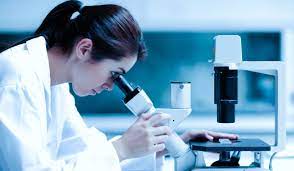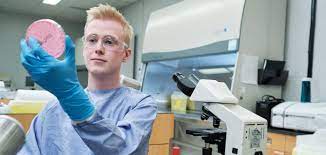
The Essential Role of Lab Techs in Modern Healthcare
The Role of Lab Technicians in Modern Healthcare
Lab technicians play a vital role in the healthcare industry, working behind the scenes to support patient diagnosis and treatment. These skilled professionals are responsible for performing a variety of laboratory tests and procedures that help doctors make informed decisions about patient care.
One of the key duties of lab technicians is to collect and analyze samples, such as blood, urine, and tissue, using specialized equipment and techniques. They follow strict protocols to ensure accuracy and reliability in their test results, which are crucial for accurate diagnosis and treatment planning.
In addition to conducting tests, lab technicians are also responsible for maintaining laboratory equipment, calibrating instruments, and ensuring that all safety protocols are followed. They work closely with other healthcare professionals, such as doctors and nurses, to provide comprehensive care to patients.
With advances in technology and medicine, the role of lab technicians has become increasingly important in modern healthcare. They play a critical role in detecting diseases early, monitoring treatment effectiveness, and ensuring patient safety.
Overall, lab technicians are unsung heroes in the healthcare industry, working diligently behind the scenes to support patient care and improve health outcomes. Their dedication to precision and accuracy is essential for providing quality healthcare services to patients around the world.
Key Insights into the Laboratory Technician Profession: Responsibilities, Education, Skills, Salary, and Work Environments
- What does a lab technician do?
- What education is required to become a lab technician?
- What skills are important for a lab technician to have?
- How much does a lab technician earn on average?
- What are the typical work settings for lab technicians?
What does a lab technician do?
A lab technician plays a crucial role in the healthcare industry by performing various laboratory tests and procedures to aid in patient diagnosis and treatment. Their responsibilities include collecting and analyzing samples, such as blood and tissue, using specialized equipment to generate accurate test results. Lab technicians also ensure the proper maintenance of laboratory equipment, adhere to safety protocols, and collaborate with healthcare professionals to deliver comprehensive care to patients. Their meticulous work behind the scenes is essential for facilitating accurate diagnoses, monitoring treatment effectiveness, and ultimately improving patient outcomes in modern healthcare settings.
What education is required to become a lab technician?
To become a lab technician, typically a minimum of an associate degree in medical laboratory technology or a related field is required. Some employers may prefer candidates with a bachelor’s degree for advanced positions. Additionally, completing a clinical laboratory science program accredited by the National Accrediting Agency for Clinical Laboratory Sciences (NAACLS) is often necessary to gain the necessary skills and knowledge for this role. Many lab technicians also pursue certification through organizations like the American Society for Clinical Pathology (ASCP) to demonstrate their competency in the field. Continuous education and training are essential for lab technicians to stay updated on the latest advancements in technology and healthcare practices.
What skills are important for a lab technician to have?
In the field of laboratory technology, certain skills are essential for a lab technician to excel in their role. Strong attention to detail is crucial, as lab technicians must accurately perform tests and record data to ensure reliable results. Proficiency in using laboratory equipment and understanding scientific procedures is also key, as technicians are responsible for conducting tests and experiments following strict protocols. Effective communication skills are important for collaborating with healthcare professionals and accurately reporting findings. Additionally, problem-solving abilities and critical thinking skills are valuable for troubleshooting issues that may arise during testing processes. Overall, a combination of technical expertise, attention to detail, communication skills, and problem-solving capabilities are vital for a lab technician to succeed in their role.
How much does a lab technician earn on average?
Lab technicians’ salaries can vary depending on factors such as location, level of experience, and the specific industry they work in. On average, a lab technician in the United States can expect to earn a median annual salary of around $53,000. However, entry-level positions may start at a lower salary, while experienced technicians with specialized skills or certifications may command higher pay. It’s important to note that salaries can also differ between different states and regions, with metropolitan areas typically offering higher wages compared to rural areas. Overall, lab technicians are valued for their crucial role in healthcare and scientific research, and their salaries reflect the importance of their work in these fields.
What are the typical work settings for lab technicians?
Lab technicians can work in a variety of settings, including hospitals, clinics, research laboratories, pharmaceutical companies, and public health agencies. In hospitals and clinics, lab technicians often perform diagnostic tests to assist doctors in diagnosing and treating patients. Research laboratories employ lab technicians to conduct experiments and analyze data for scientific research. Pharmaceutical companies rely on lab technicians to develop and test new drugs and medications. Public health agencies may utilize lab technicians to monitor and control the spread of diseases through testing and analysis. Overall, the work settings for lab technicians are diverse and offer a range of opportunities for professionals in this field.



